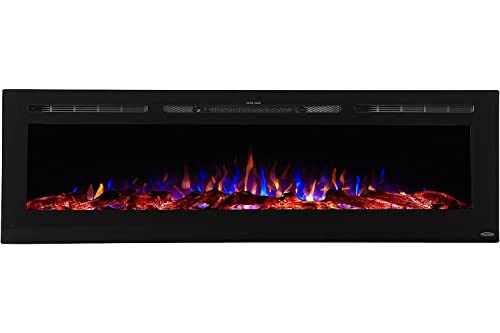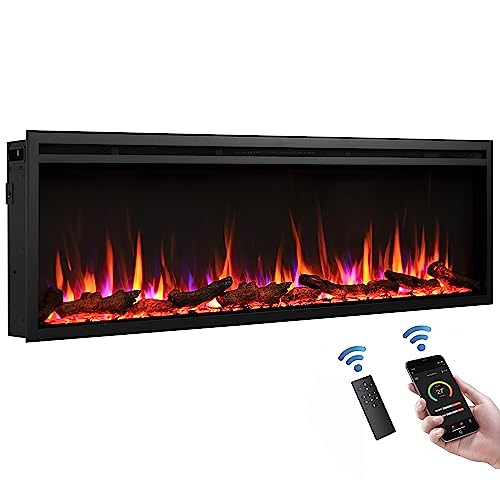13 Things About Fireplace Surrounds You May Not Have Known
페이지 정보
 The right surround for your fireplace can alter the look of the room regardless of whether you have an electric or wood-burning fireplace. But finding a surround that fits your interior style may be a bit tricky.
The right surround for your fireplace can alter the look of the room regardless of whether you have an electric or wood-burning fireplace. But finding a surround that fits your interior style may be a bit tricky. Brick is a popular option that is a good fit for contemporary, rustic or farmhouse-style homes. It's also an excellent choice for homeowners on a tight budget, as it can be easily painted.
Brick is a popular option that is a good fit for contemporary, rustic or farmhouse-style homes. It's also an excellent choice for homeowners on a tight budget, as it can be easily painted.Wood
A fireplace surround made of wood is an essential piece of furniture as it creates a focal point to the room, and it also helps break down walls that might otherwise be empty. A wooden surround also makes it easier to hang holiday decorations. Pine surrounds in particular can be used to hang wreathes and garlands and these are easily removed after the festive season has ended.
When choosing a wood freestanding fireplace surround, it is essential to choose one that complements the style of your home. Wooden surrounds are available in a variety of styles and finishes to match any decor, from traditional to contemporary. There are also a variety of options for size and design. For example some fireplace surrounds are in a flat style that is set in a straight line with the wall while others are designed to be a mantel, and are positioned away from it.
Oak is the most well-known wood used for fireplace surrounds. It is strong and attractive. It is a strong and dense wood that is resistant to warping, shrinkage, and swelling. It is also hygroscopic which means it absorbs moisture in the air. This helps to protect against damage caused by fungi and fungus.
The pine and oak veneers are also available as wood fireplace surrounds. Both of these are fairly inexpensive and are usually sold as complete surrounds that have the hearth and back panel as well. They are available at several DIY and home-based stores. They are also commonly sold through online retailers such as Pureglow.
It is essential to remember that a wood surround should be set a certain distance from the opening of the firebox for safety. The distance is determined by fire hazard clearance requirements which are based on codes and regulations for the area you live in.
Stone
A fireplace with a stone surround can provide an authentic and warm appearance to your home. It's not just a way to blend into your interior design style and style, but it also can increase the value of your home. In fact, some studies show that a beautifully designed fireplace can help your house sell more quickly and at a higher value.
There are many types of stone that you can use for your fireplace surround, including marble and granite. Both are durable and can last for a long period of time with minimal maintenance. They are also often cheaper than hardwood.
Natural stone is more expensive than other materials, however it provides a higher degree of beauty and durability and is therefore a worthy investment. You can choose between different colors, patterns, and textures to create an original design for your home. You can even choose to have your fireplace surround made from natural stone, making it unique design elements.
Stone surrounds are a great choice for gas and wood fireplaces. Stone surrounds are able to withstand high temperatures, and aren't warped or cracked when exposed to temperatures that are high. Furthermore, they are resistant to stains and scratches. Granite is a well-known and affordable option for fireplace surrounds. It is scratch resistant, non-porous and resistant to chemicals that would otherwise damage other surfaces within the home.
A stone fireplace surround can be time-consuming and difficult to clean. The crevices and joints made of concrete between the stones can hold household dirt. Cleaning your fireplace regularly is essential to prevent any buildup that could lead to an illness or fire hazard.
Marble
Marble is a beautiful, elegant material that transforms any freestanding fireplace into a stunning feature. The beautiful stone can be used in a range of styles, ranging from modern to traditional, which makes it easy to find the perfect marble surround to go with your design. Marble fireplaces work well in open floor plans, introducing elegance and sophistication to the space while bringing harmony between different zones.
In contrast to other materials, marble is impervious to heat, so it won't change color or shrink as the fire gets hotter. It also insulates heat, which helps keep the room warm even after the fire has gone out. Marble comes in a range of finishes and colors so you can find the most suitable design to suit your taste.
If you decide to install a marble fire place, you will want to select a color that compliments the other design elements of the room. White marble looks great when paired with neutral tones and can be combined with wood trim or accent pieces to create a classic look. Darker marbles, like the deep swirls in this home designed by Tamsin Johnson, work with earth tones and more relaxed styles.
Be prepared to do some additional maintenance if you decide to install marble fireplace. Marble is more prone to staining than other materials, and requires regular sealing to preserve its appearance. You'll also need to wipe it down regularly to prevent water and etching staining. There are marble cleaners available. However, it is recommended to test them in a discreet area before using them to clean your marble surround. Granite is a great alternative to marble for those who don't want to spend a lot of time on maintenance.
Granite
Granite is natural stone that can be used to add an impressive accent to any fireplace. It's a durable rock that resists wear and tear and holds up against high temperatures, which makes it a perfect choice for fireplaces. It's also a non-combustible material which helps keep the area around the fire free of ash and other debris that could fall and cause damage to the surface.
Your customers can select from a wide array of granite color options to personalize their fireplace surrounds. Think about white and black swirls to match the geometric form of a modern gas fireplace. A marbled granite surround that extends for several feet around a wood-burning fire place can create a focal point on the wall of an old-fashioned room.
The classic look of limestone is a great option for any home. This stone is light browns and creams, which can blend with a variety of designs and themes. It is resistant against heat and is able to be able to withstand smoke from burning wood. However, it must be sealed on a regular basis to prevent staining and water penetration.
If your clients are looking for an icy tone, consider Baracuda blue granite. It has oceanic ripples in shades of grey, white, and blue. This granite is stunning next to a roaring fireplace and is easy to maintain.
Granite is an igneous rock that's formed from magma, so it naturally possesses superior durability and strength. It's rated seven of ten on the Mohs hardness scale, making it extremely difficult to scratch. Contrary to other natural stones which break or crack easily under stress, granites are able to stand up to a tremendous amount of stress without causing damage. This is the key reason why granite structures can last for centuries.
Steel
A steel fireplace surround is a great option to bring modern design to your home. Its neutral look is easy to maintain and blends with a variety of decor. You can choose to use it by itself or pair it with other materials, such as wood for a more traditional look.
A metal surround can also be used to assist with problems with drafting. It creates a smaller area for combustion, which decreases the amount of heat that escapes the flue. This is especially beneficial for gas-powered fireplaces.
Steel fireplace surrounds come in different styles and finishes. Some are brushed or polished for a more elegant finish while others have a rougher surface to add contrast to a room. The type of steel you pick will depend on your preferred aesthetic and the color scheme you have chosen for your space.
Certain fireplace surrounds made of steel include a mantel, which can be used to house decorative items such as pots or plants. The design of the mantel can be different but the majority of them have a simple or stepped design to give a more dimensional look to your fireplace.
You can also choose to install the surround alone, without a mantel. This is usually less expensive and works well for smaller rooms where a large surround may overwhelm the space.
When installing a new surround it is crucial to consider the dimensions of the hearth and chimney breast. This will ensure that the surround extends no more than the front of the hearth and is situated at a safe distance from fireplace opening. If you plan to use a combustible surround, then you'll need to consider the local codes and regulations. A professional can give you guidance on this.
- 이전글A Brief History Of In Wall Fireplace In 10 Milestones 24.11.23
- 다음글Bioethanol Freestanding Stove Tips From The Most Successful In The Industry 24.11.23
댓글목록
등록된 댓글이 없습니다.









